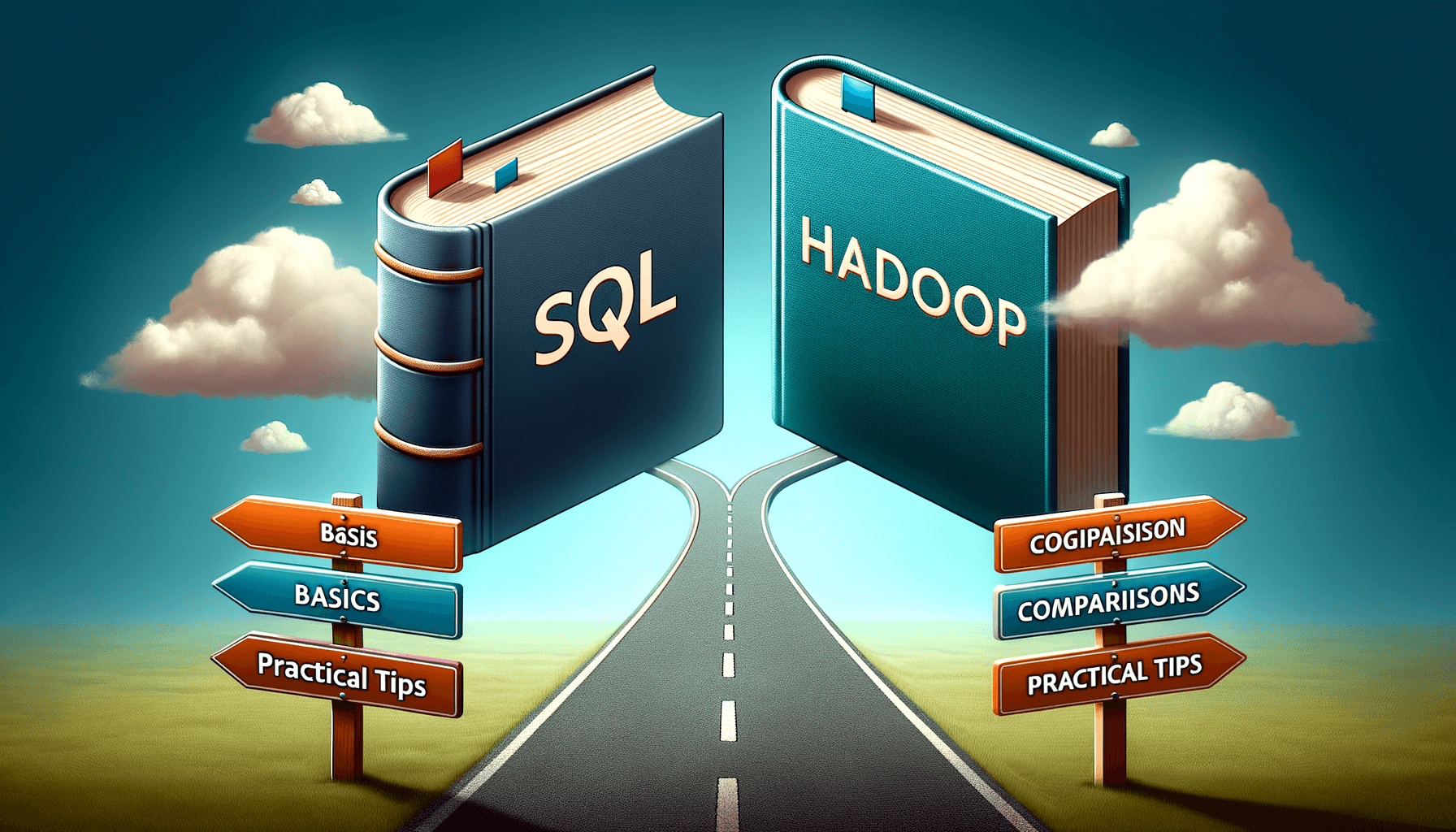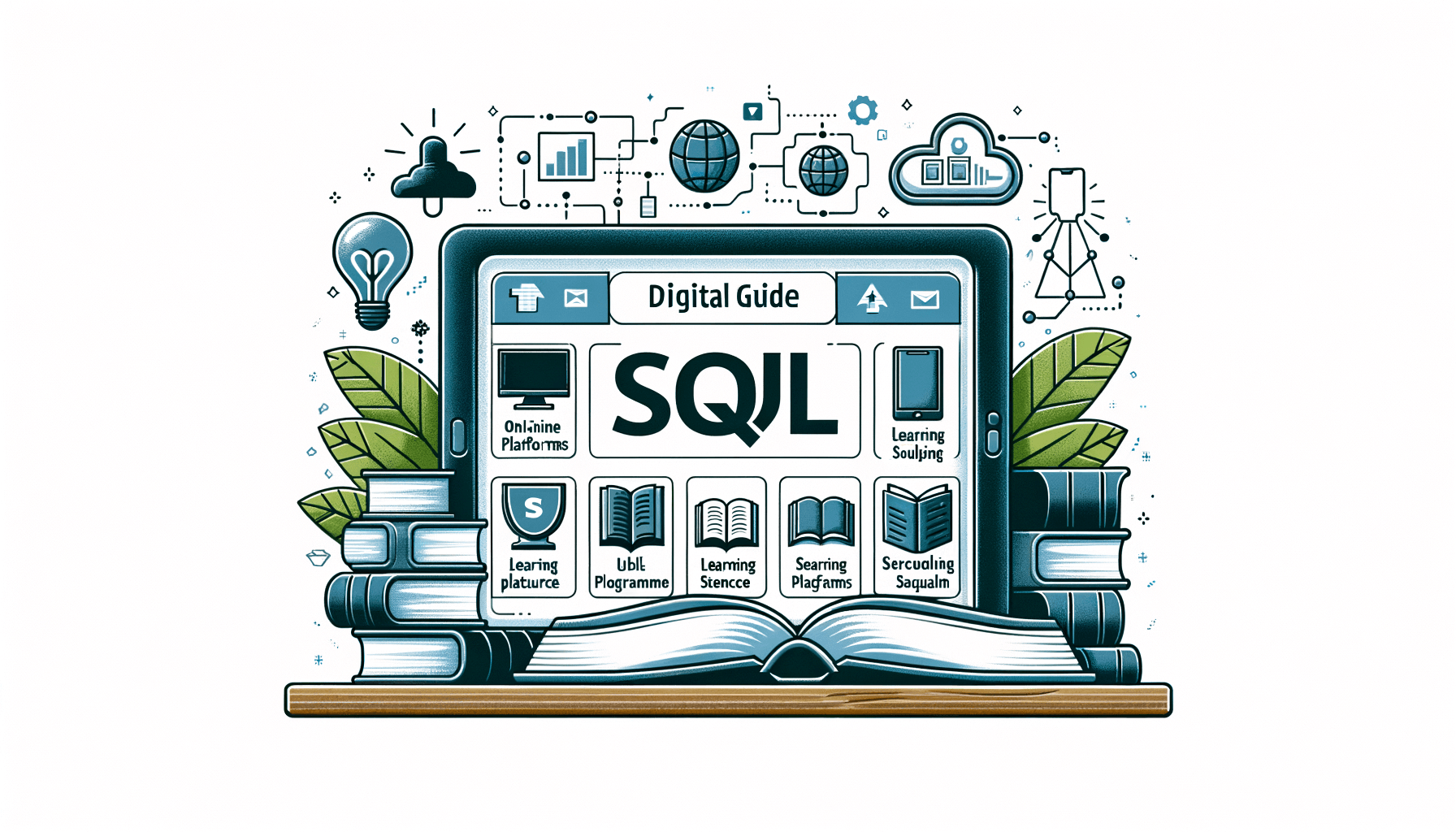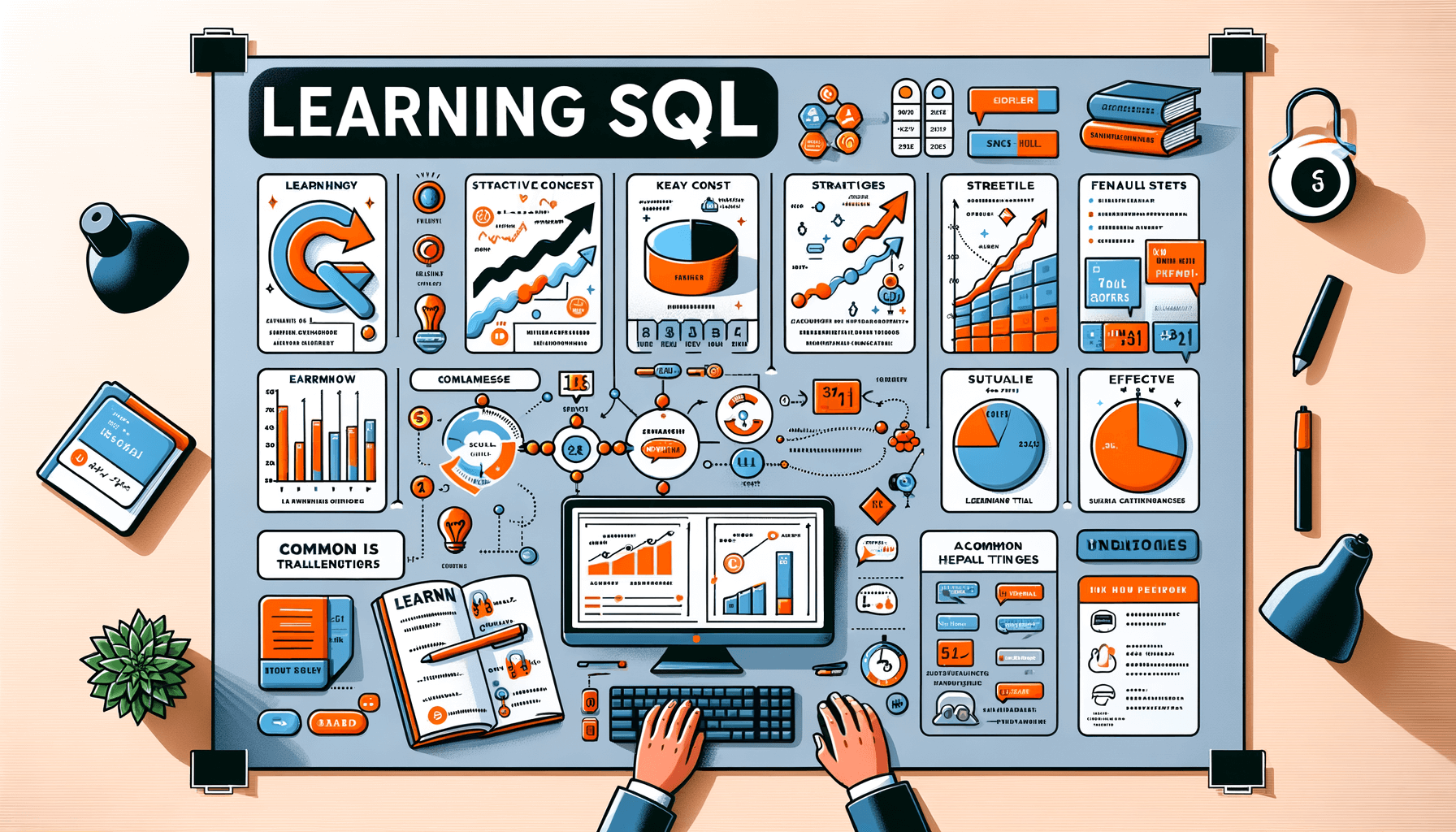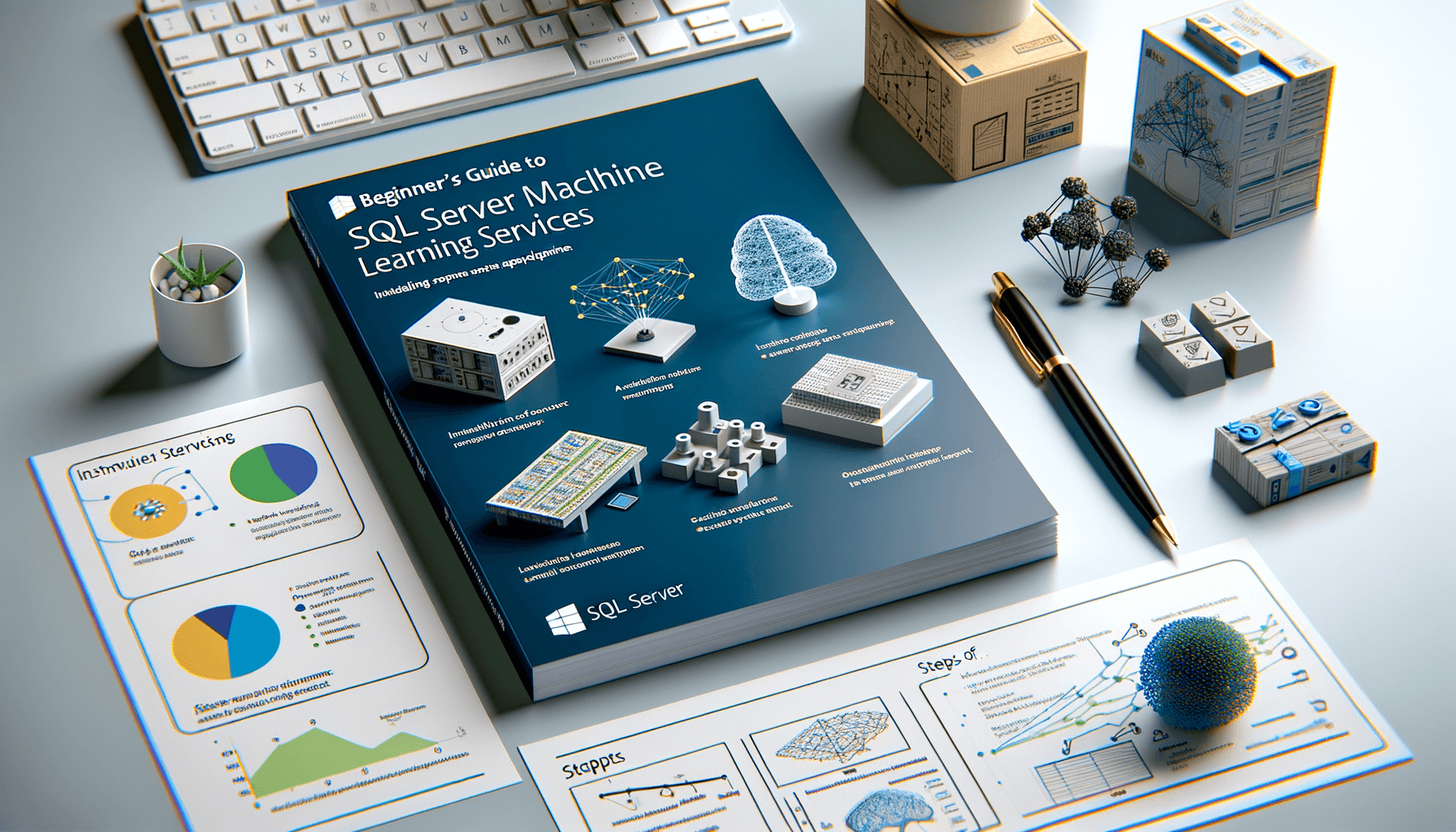A big variety of articles and resources

Do we need SQL knowledge to learn Hadoop?
 Sia Author and Instructor
Learn SQL
Sia Author and Instructor
Learn SQL
14 minute read
In the world of big data, Hadoop is a popular tool that helps manage and process large datasets. But many wonder if knowing SQL is necessary before diving into Hadoop. This article will explore the basics of Hadoop, compare it with traditional databases, and discuss if prior SQL knowledge is needed. We'll also look at the benefits of SQL skills for Hadoop users and provide practical tips for learning Hadoop efficiently.
Key Takeaways
- Hadoop is a powerful tool for managing big data, but you don't need to know SQL to start learning it.
- Understanding the core components and ecosystem of Hadoop is crucial for beginners.
- While SQL skills can be helpful, there are many resources available to learn Hadoop without prior SQL knowledge.
- Hadoop is compatible with many SQL-based tools, making it easier for those with SQL skills to transition.
- There are many success stories of people learning Hadoop without any SQL background, showing it's possible to master Hadoop on its own.
Understanding the Basics of Hadoop
Core Components of Hadoop
Hadoop is made up of several key parts. The main ones are the Hadoop Distributed File System (HDFS) and MapReduce. HDFS stores large amounts of data across many machines. MapReduce processes this data by breaking it into smaller tasks. These components work together to handle big data efficiently.
Hadoop Ecosystem Overview
The Hadoop ecosystem includes many tools that help with different tasks. Some popular ones are Hive, Pig, and HBase. These tools make it easier to work with data stored in Hadoop. For example, Hive lets us use SQL-like queries to manage data. Pig is great for writing data analysis programs. HBase is a database that works well with Hadoop.
Key Features of Hadoop
Hadoop has several important features. First, it can store and process huge amounts of data. Second, it is designed to work on many machines at once. This makes it very fast and reliable. Third, Hadoop is open-source, so anyone can use and improve it. These features make Hadoop a powerful tool for big data projects.
Understanding these basics is the first step to mastering Hadoop. With these tools and features, we can handle big data challenges more easily.
The Role of SQL in Data Management
SQL Fundamentals
SQL, or Structured Query Language, is the standard language for managing and manipulating databases. It allows us to perform various operations like querying data, updating records, and managing database structures. Understanding SQL basics is crucial for anyone working with data, as it forms the foundation for more advanced data management tasks.
Importance of SQL in Data Handling
SQL plays a vital role in data handling by enabling efficient data retrieval and manipulation. It allows us to filter, sort, and aggregate data, making it easier to analyze and draw insights. With SQL, we can handle large datasets and perform complex queries that would be difficult to achieve with other methods. This makes SQL an essential tool for data professionals.
SQL vs NoSQL
When comparing SQL and NoSQL databases, it's important to understand their differences. SQL databases are relational and use structured schemas, while NoSQL databases are non-relational and can handle unstructured data. Each has its own strengths and weaknesses, and the choice between them depends on the specific needs of a project. For instance, SQL databases are ideal for applications requiring complex queries and transactions, while NoSQL databases are better suited for handling large volumes of unstructured data.
In summary, SQL is a powerful language for managing and manipulating data, and its importance in data handling cannot be overstated. Whether you're working with traditional relational databases or exploring NoSQL options, having a solid understanding of SQL fundamentals is essential for effective data management.
Comparing Hadoop and Traditional RDBMS
Architectural Differences
When we look at the architecture of Hadoop and traditional RDBMS, we see some big differences. Hadoop is designed to handle large amounts of data across many computers. It uses a distributed file system called HDFS. On the other hand, traditional RDBMS uses a single, powerful computer to store and manage data. This makes Hadoop better for big data tasks.
Performance Considerations
Performance is another area where Hadoop and RDBMS differ. Hadoop can process large data sets quickly because it splits the work across many machines. Traditional RDBMS can be slower with big data because it relies on one machine. However, for smaller tasks, RDBMS can be faster and more efficient.
Use Cases for Each
Hadoop and RDBMS are used for different things. Hadoop is great for big data analysis, like finding patterns in large data sets. RDBMS is better for tasks that need quick access to small amounts of data, like managing a bank's customer accounts.
In summary, both Hadoop and RDBMS have their strengths. Choosing the right one depends on the task at hand. For big data, Hadoop is often the best choice. For smaller, quick tasks, RDBMS is usually better.
Learning Hadoop Without Prior SQL Knowledge
Prerequisites for Learning Hadoop
Before diving into Hadoop, it's helpful to have a basic understanding of programming and data structures. Familiarity with Linux commands can also be beneficial. However, prior SQL knowledge is not mandatory. Many resources are available to help you get started without needing to master SQL first.
Resources for Beginners
There are numerous online platforms where you can learn Hadoop from scratch. Websites like sqlskillz.com vs w3schools.com offer courses that are perfect for beginners. These platforms allow you to learn at your own pace, and you don't need a credit card to sign up.
Common Challenges and Solutions
Learning Hadoop can be challenging, especially if you're new to data management. One common issue is understanding the Hadoop ecosystem. To overcome this, we recommend starting with the core components and gradually exploring additional tools. Another challenge is managing large datasets, but practicing with smaller datasets can help build your confidence.
Even without prior SQL knowledge, you can successfully learn Hadoop by leveraging the right resources and staying persistent in your learning journey.
SQL Skills That Benefit Hadoop Users
Query Optimization Techniques
When working with Hadoop, understanding query optimization techniques can significantly improve performance. Efficient queries reduce processing time and resource usage, making data analysis faster and more cost-effective. Learning how to optimize queries involves understanding indexing, partitioning, and the use of appropriate join types.
Data Modeling Concepts
Data modeling is crucial for organizing and structuring data in a way that makes it easy to retrieve and analyze. In Hadoop, we often deal with large datasets, and having a solid grasp of data modeling concepts helps in designing efficient data storage solutions. This includes knowing how to create schemas, define relationships, and ensure data integrity.
ETL Processes
Extract, Transform, Load (ETL) processes are essential for preparing data for analysis. In Hadoop, ETL processes help in cleaning, transforming, and loading data into the Hadoop ecosystem. Familiarity with ETL tools and techniques can streamline data preparation, making it easier to work with large datasets.
By mastering these SQL skills, we can enhance our ability to work effectively with Hadoop, making data processing more efficient and insightful.
- Mini course: SQL data manipulation tools.
- Dive into SQL grouping, filtering, and data preparation.
- Gain advanced analytical skills and project readiness for real-world data science challenges.
Hadoop's Compatibility with SQL-Based Tools
Hive and SQL Integration
Hive is a powerful tool that allows us to use SQL-like queries to interact with data stored in Hadoop. This makes it easier for those familiar with SQL to work with big data. Hive translates SQL queries into MapReduce jobs, which Hadoop can then process. This integration helps bridge the gap between traditional SQL databases and Hadoop's distributed storage system.
Using Pig with SQL
Pig is another tool in the Hadoop ecosystem that supports SQL-like queries. It uses a language called Pig Latin, which is somewhat similar to SQL. Pig is designed to handle both structured and unstructured data, making it versatile. We can use Pig to perform data transformations and analysis, leveraging our SQL knowledge to write efficient scripts.
Other SQL-Compatible Tools
There are several other tools that make Hadoop compatible with SQL. For example, Impala allows for real-time querying of data stored in Hadoop using SQL syntax. HBase, while primarily a NoSQL database, also supports SQL queries through Phoenix. These tools expand Hadoop's functionality, making it more accessible to users with an SQL background.
Understanding how these tools work together can significantly enhance our ability to manage and analyze large datasets in Hadoop. By leveraging our existing SQL skills, we can more easily transition to using Hadoop and take full advantage of its capabilities.
Case Studies: Success Stories of Non-SQL Users Learning Hadoop
Industry Examples
In various industries, individuals without prior SQL knowledge have successfully learned Hadoop. For instance, in the healthcare sector, data analysts have transitioned to using Hadoop for large-scale data processing without needing to learn SQL first. This demonstrates that a background in SQL is not a strict requirement for mastering Hadoop.
Learning Pathways
Many non-SQL users have found success by following structured learning pathways. These often include online courses, tutorials, and hands-on projects. A common approach is to start with the basics of Hadoop and gradually move to more complex tasks. This method allows learners to build confidence and skills at their own pace.
Key Takeaways
- Non-SQL users can learn Hadoop effectively.
- Structured learning pathways are crucial.
- Hands-on practice is essential for mastering Hadoop.
It's important to note that while SQL knowledge can be beneficial, it is not a prerequisite for learning Hadoop. With the right resources and dedication, anyone can become proficient in Hadoop.
Educational Pathways for Hadoop and SQL
Formal Education Options
When it comes to learning Hadoop and SQL, formal education can be a solid foundation. Many universities now offer specialized courses in big data and database management. These programs often include hands-on labs and projects, which are crucial for understanding real-world applications. A degree in computer science or information technology can be particularly beneficial.
Online Courses and Tutorials
For those who prefer a more flexible learning schedule, online courses and tutorials are excellent options. Websites like Coursera, Udemy, and edX offer a variety of courses that cover both Hadoop and SQL. These platforms often provide certificates upon completion, which can be a great addition to your resume. Interactive exercises and quizzes help reinforce the material, making it easier to grasp complex concepts.
Certifications and Workshops
Certifications can validate your skills and make you more attractive to employers. Organizations like Cloudera and Hortonworks offer certifications specifically for Hadoop. Similarly, SQL certifications from Microsoft or Oracle can be very valuable. Workshops, whether in-person or virtual, provide an opportunity for hands-on learning and direct interaction with experts in the field.
Choosing the right educational pathway depends on your learning style and career goals. Whether you opt for formal education, online courses, or certifications, each has its own set of advantages.
Future Trends in Big Data and SQL
Evolving Technologies
Big data and SQL are always changing. New tools and methods come out all the time. Staying updated is key. We see more use of cloud services and machine learning. These help us handle data better and faster.
Market Demand for Skills
The need for big data and SQL skills is growing. Companies want people who can manage and analyze data. This means more jobs and better pay. From zero to PostgreSQL junior DBA, you can find many courses to help you learn. These courses often include hands-on projects and expert-led training.
Predictions for Data Management
We think data management will get even more important. More data means more ways to use it. We will need better tools and smarter ways to handle data. This will help us make better choices and find new chances.
The future of big data and SQL looks bright. We must keep learning and adapting to stay ahead.
Expert Opinions on the Necessity of SQL for Hadoop
Interviews with Data Scientists
Many data scientists agree that having a background in SQL can be beneficial when learning Hadoop. They emphasize that mastering PostgreSQL performance and query optimization can make the transition smoother. However, they also note that it's possible to learn Hadoop without prior SQL knowledge. The key is to understand the basics of data management and be willing to learn new tools and techniques.
Perspectives from Educators
Educators often recommend that students learn SQL basics at their own pace before diving into Hadoop. This foundational knowledge can help students grasp more complex concepts later on. They suggest starting with simple queries and gradually moving to more advanced topics. No credit card is required to access many free online resources, making it easy to get started.
Industry Surveys
Industry surveys show a mixed opinion on the necessity of SQL for Hadoop. While some professionals find SQL skills essential, others believe that hands-on experience with Hadoop tools is more valuable. The consensus is that both skill sets are important, but one can succeed in Hadoop even without a strong SQL background.
Learning SQL can provide a solid foundation, but it's not a strict requirement for mastering Hadoop. The focus should be on understanding data management principles and being adaptable to new technologies.
Practical Tips for Learning Hadoop Efficiently
Hands-On Practice
To truly grasp Hadoop, we need to dive into hands-on practice. Setting up a small Hadoop cluster on our local machines can be a great start. This allows us to experiment with different components and understand how they work together. Practical experience is invaluable in mastering Hadoop.
Community Support
Joining online forums and communities can be incredibly helpful. Platforms like Stack Overflow, Reddit, and specialized Hadoop forums offer a wealth of knowledge. We can ask questions, share our experiences, and learn from others who are also on their Hadoop journey.
Utilizing Open Source Resources
There are numerous open-source resources available for learning Hadoop. Websites like GitHub host a variety of projects and code samples that we can study and modify. Additionally, many educational platforms offer free courses and tutorials that can help us build a strong foundation in Hadoop.
Engaging with the community and utilizing open-source resources can significantly accelerate our learning process.
Learning Hadoop can be a game-changer for your tech career. To make the most of your study time, check out our website for expert-led courses and resources. Our team is here to help you every step of the way. Don't wait, start your learning journey today!
Conclusion
In summary, while having SQL knowledge can be helpful when learning Hadoop, it is not strictly necessary. Hadoop and its ecosystem offer a variety of tools and languages that can be learned independently of SQL. However, understanding SQL can make the learning process smoother and more efficient, especially when dealing with data querying and manipulation. Ultimately, the decision to learn SQL first depends on your specific goals and the requirements of the projects you plan to work on. Whether you start with SQL or dive straight into Hadoop, both paths offer valuable skills that are highly sought after in the data industry.
Frequently Asked Questions
Do I need to know SQL to start learning Hadoop?
No, you don't need to know SQL before learning Hadoop. While SQL can help, you can start with basic programming skills.
What are the core parts of Hadoop?
Hadoop has four main parts: HDFS for storage, MapReduce for processing, YARN for resource management, and Hadoop Common for common utilities.
How does Hadoop differ from traditional databases?
Hadoop can handle very large amounts of data and is good for batch processing. Traditional databases are better for quick, small data tasks.
Can I use SQL with Hadoop?
Yes, you can use SQL with Hadoop. Tools like Hive let you write SQL queries to work with data stored in Hadoop.
What are some good resources to start learning Hadoop?
You can find many online courses, tutorials, and books. Websites like Coursera, Udacity, and Khan Academy offer beginner-friendly lessons.
What challenges might I face when learning Hadoop?
You might find it hard to set up the environment and understand the different components. But with practice, it gets easier.
Are there any success stories of people learning Hadoop without SQL knowledge?
Yes, many people have learned Hadoop without knowing SQL first. They often start with basic programming and gradually pick up SQL skills.
What are some SQL skills that can help when using Hadoop?
Knowing how to optimize queries, model data, and handle ETL processes can be very helpful when working with Hadoop.
Related Articles

Best SQL Learning Resources: Your Ultimate Guide
10 minute read

How Fast Can I Learn SQL? Tips and Timelines
9 minute read





